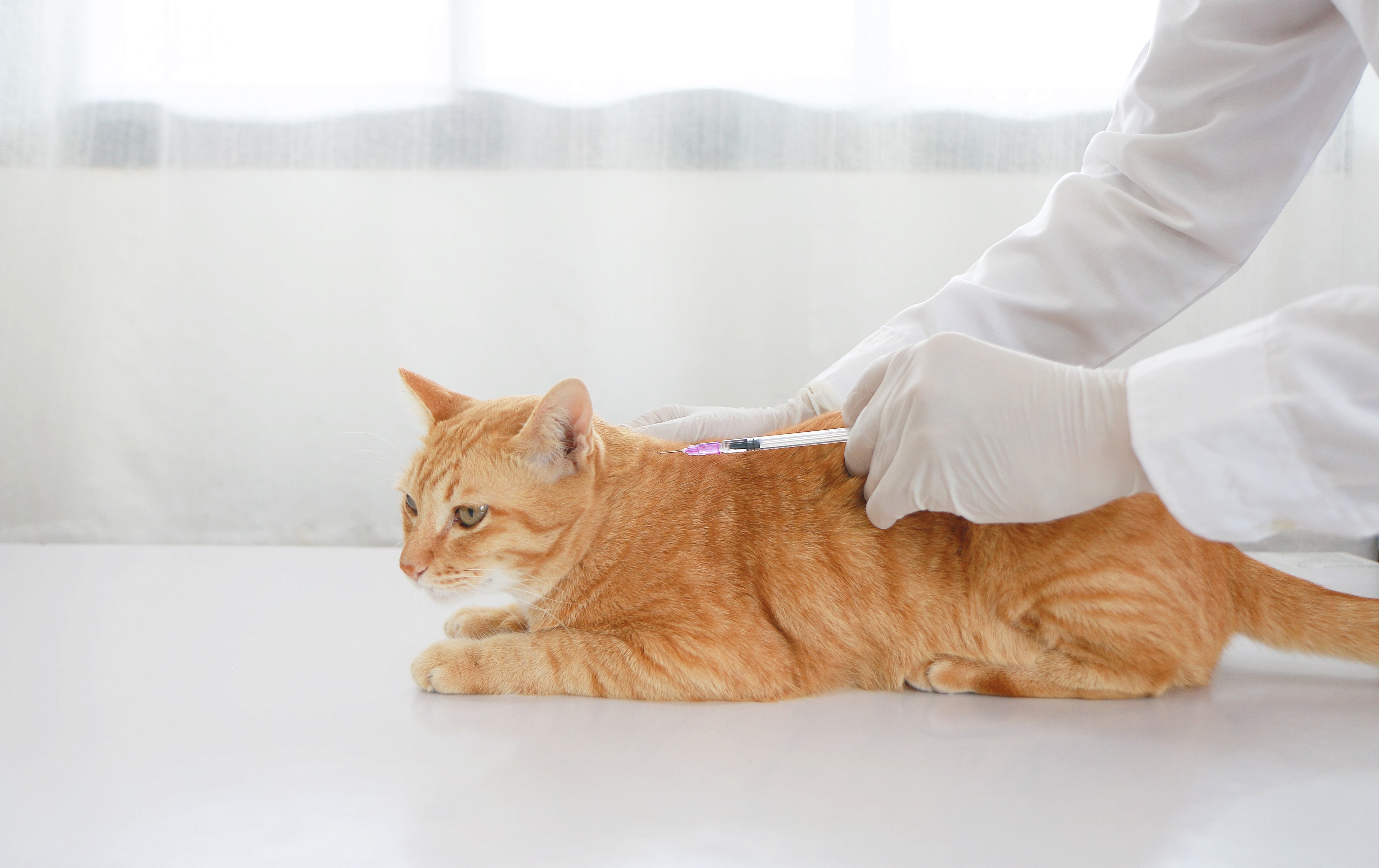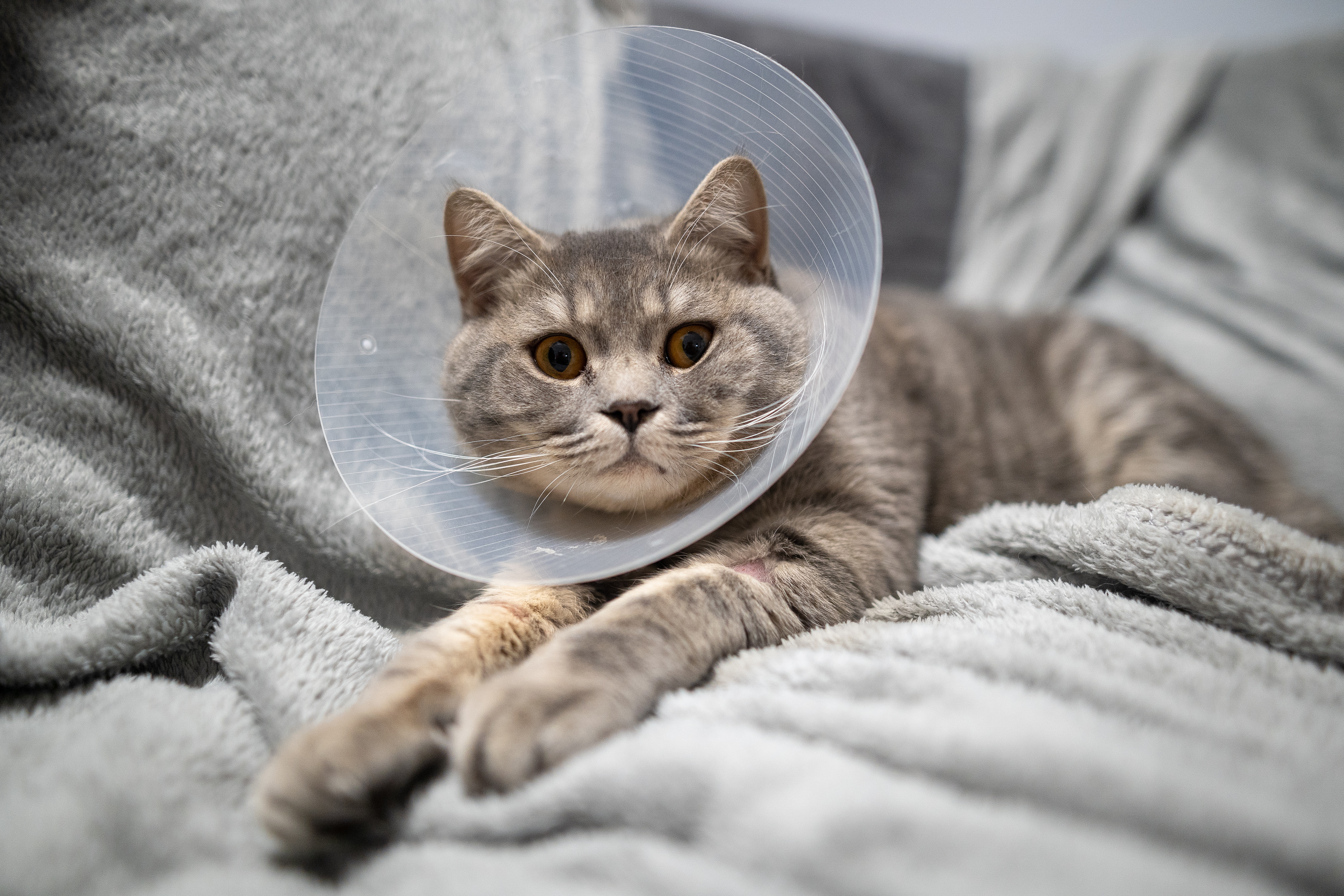
Your pet’s health might seem complicated, but there’s a simple step to protect them from many diseases: vaccination. Vaccinations play a crucial role in preventive healthcare for pets, offering protection against serious and deadly diseases.
This article will guide you through the importance of vaccinating your pets, covering everything from essential pet vaccinations to how they boost your furry friend’s immune system.
Keep reading to ensure your pet’s wellbeing!
What are Pet Vaccines and Why Are They Important?
Pet vaccines are crucial for protecting your pet from potentially deadly diseases. They play a vital role in strengthening the immune system and safeguarding their overall health.
Definition of pet vaccines
Pet vaccines are shots given to animals to protect them from various diseases. These vaccinations contain small, safe amounts of viruses or bacteria that cause diseases. By introducing these into the pet’s body, the immune system learns to recognize and fight off these invaders in the future.
This process is vital for pet wellness and a fundamental part of preventive care in veterinary medicine.
Vaccinating your pets plays a crucial role in disease prevention among animals. It not only safeguards your furry friends from serious health issues but also contributes to public health by reducing the spread of contagious diseases between animals and humans.
Regular vaccination schedules are essential for keeping your pets healthy and protecting them against potential outbreaks of deadly illnesses.
Importance of vaccinations for pets
Vaccinating your pet is crucial for protecting their health and preventing the spread of contagious diseases. Pet vaccines help safeguard them from life-threatening illnesses, such as rabies, distemper, and parvovirus.
By strengthening your pet’s immune system, vaccines play a key role in improving public health by reducing the risk of transmitting certain diseases to humans. This not only keeps your furry friend healthy but also ensures the safety of your family and community.
Regular vaccinations can also extend your pet’s lifespan while being cost-effective in comparison to the expenses associated with treating preventable diseases. Furthermore, vaccinating your pet aids in early disease detection and promotes socialization opportunities with other pets during grooming or boarding experiences.
Overall, staying up-to-date with vaccinations is an essential part of responsible pet ownership that contributes to ensuring the wellbeing of both animals and people alike.
Protection against deadly diseases
Vaccinating your pets is crucial for protecting them from deadly diseases such as rabies, canine distemper, and parvovirus. These illnesses can be fatal if contracted by your furry friend.
By vaccinating your pet, you contribute to preventing the spread of these dangerous diseases within the animal community and safeguarding both their health and that of humans around them.
Additionally, immunizing your pets not only keeps them safe but also plays a vital role in promoting public health.
Ensuring that your pet is up-to-date with vaccinations significantly reduces their risk of contracting life-threatening infections like leptospirosis, which can cause severe liver or kidney damage.
In addition to protecting your beloved companion’s health, vaccines help prevent the transmission of these diseases to humans. This proactive measure is essential for preserving the overall well-being of both animals and people alike.
Strengthening the immune system
Vaccinating your pets plays a crucial role in strengthening their immune system, helping them fight off diseases and infections. Pet vaccines contain small amounts of weakened or dead viruses or bacteria that stimulate the immune system to produce protective antibodies.
These antibodies provide defense against specific diseases, bolstering your pet’s ability to ward off illnesses. By ensuring your pet receives appropriate vaccinations, you can significantly enhance their immunity and overall health, safeguarding them from various potentially life-threatening conditions.
Furthermore, vaccinating your pets not only protects their individual health but also contributes to broader public health by reducing the spread of contagious diseases among animals and minimizing the risk of transmission to humans.
Vaccines are designed to trigger an immune response tailored towards combating specific pathogens, ultimately fortifying your pet’s defenses and promoting their well-being.
The Benefits of Vaccinating Your Pets
Vaccinating your pets not only improves public health but also extends their life, provides cost-effective disease prevention, enables early disease detection, and promotes socialization and grooming.
To discover more benefits of pet vaccination, read the full article.
Improving public health
Vaccinating your pets plays a crucial role in improving public health by preventing the spread of infectious diseases. By ensuring that your pet is immunized with essential vaccines, you are contributing to the overall well-being of the community and reducing the risk of outbreaks.
For example, vaccinating your pet against rabies not only protects them from this deadly disease but also helps to safeguard humans, as rabies can be transmitted to people through animal bites.
Protecting your pet with vaccines is an essential part of responsible pet ownership and contributes to a healthier environment for all.
Ensuring that pets are vaccinated according to veterinary recommendations not only protects individual animals but also has broader implications for public health. Diseases such as parvovirus and distemper can spread rapidly among unvaccinated animals, posing a risk to other pets in the community.
By prioritizing vaccination for your own pet, you’re actively participating in creating safer surroundings where both animals and humans can thrive.
Extending your pet’s life
Vaccinating your pets is essential for extending their life. By protecting them against deadly diseases, vaccines play a vital role in ensuring their long-term health and well-being.
Regular immunization also strengthens your pet’s immune system, helping them to fight off potential illnesses and enhancing their overall longevity. Furthermore, vaccinations contribute to public health by preventing the spread of contagious diseases from animals to humans, fostering a healthier environment for both pets and their owners.
Protecting your pet through vaccination not only safeguards its well-being but also contributes positively towards public health. It’s an essential part of responsible pet ownership that can significantly extend your furry friend’s life while reducing the risk of disease transmission within the community.
Cost-effectiveness
Extending your pet’s life through vaccinations is not only essential for their well-being but also cost-effective for you as a pet owner. By preventing your pets from contracting serious and often costly diseases, you can save money on vet bills and expensive treatments.
For example, treating parvovirus in dogs can cost anywhere from $500 to $2,000 or more, while the vaccine itself typically costs around $20 to $30. This shows that investing in preventive care through vaccinations is not just about protecting your pet’s health but also about saving on potential financial burdens.
By incorporating routine vaccinations into your pet’s healthcare plan, you are effectively taking proactive measures against preventable illnesses and avoiding unnecessary expenses down the road—this ensures both the health of your beloved companion and the longevity of your wallet.
Early detection of diseases
Vaccinating your pets allows for early detection of diseases, helping to identify health issues before they become serious. Regular vaccinations enable veterinarians to monitor your pet’s overall health and may reveal any underlying conditions that require attention.
By staying up-to-date with vaccination schedules, you can ensure that any potential health concerns are detected early, increasing the chances of successful treatment.
Moreover, pet vaccines serve as an essential tool in preventing and detecting diseases such as rabies and parvovirus. Through routine immunization, pet owners can actively contribute to safeguarding their furry friends from life-threatening illnesses while providing them with a longer and healthier life.
Early detection facilitated by vaccinations is crucial in maintaining the well-being of your pets.
Promoting socialization and grooming
Vaccinating your pets not only protects them from diseases but also promotes socialization and grooming. Regular vaccinations reduce the risk of contagious diseases, allowing your pet to interact with other animals safely.
Socializing with other pets can improve their behavior and strengthen their immune system. Additionally, going to the vet for vaccinations provides an opportunity for regular check-ups, where grooming needs can be addressed.
A healthy pet is happier and more likely to engage in positive interactions with both humans and other animals.
By promoting socialization through vaccinations, you are ensuring a safer environment for your pet while positively contributing to public health by reducing the spread of preventable diseases within animal communities.
Understanding Different Types of Pet Vaccines
Different types of pet vaccines include core vaccines and lifestyle vaccines, each catering to different needs and lifestyles. To learn more about the specific types of vaccinations that your pet may need, read on for valuable insights into safeguarding your furry friend’s health.
Core vaccines
Core vaccines are crucial for protecting your pet from serious and potentially deadly diseases. These essential vaccinations, such as rabies and distemper, provide primary defense against common infections that pose a significant threat to your pet’s health.
By staying up-to-date with core vaccinations, you can safeguard not only the wellbeing of your beloved companion but also public health. For instance, rabies is a fatal disease that can be transmitted to humans through animal bites, making it critical to ensure that your pet receives regular rabies vaccinations.
Regular administration of core vaccines in pets helps reduce the prevalence of infectious diseases, contributing to a healthier and safer environment for both animals and humans. Incorporating these vital shots into your pet’s healthcare routine is an effective way to prevent unnecessary suffering caused by preventable illnesses.
Lifestyle vaccines
Lifestyle vaccines are tailored to the specific needs of your pet based on their lifestyle and environment, providing targeted protection against diseases they may be exposed to. These vaccines are designed to enhance your pet’s immunity against regional threats such as Lyme disease, Leptospirosis, and kennel cough.
Lifestyle vaccines play a crucial role in safeguarding your pet’s health by offering additional layers of defense beyond core vaccinations. By incorporating these targeted immunizations into your pet’s healthcare regimen, you can take proactive measures to protect them from potential risks associated with their unique lifestyle.
Moving ahead with “How to Determine Your Pet\’s Vaccination Needs”…
How to Determine Your Pet’s Vaccination Needs
Assessing your pet’s vaccination needs is crucial to ensuring their well-being. Analyze the risk of exposure, the severity of diseases in your area, the potential for transmission to humans, and seek advice from your veterinarian based on these factors.
Find out more about making informed decisions for your pet’s health by exploring our comprehensive guide.
Risk of exposure
Understanding the risk of exposure is crucial when deciding on your pet’s vaccination needs. Factors such as the prevalence of diseases in your area and your pet’s lifestyle play a significant role in assessing this risk.
For example, if you live in an area with a high incidence of tick-borne diseases, such as Lyme disease, or if your pet frequently interacts with other animals, their exposure to certain contagious illnesses increases.
Therefore, taking into account these factors will help determine the necessary vaccinations to safeguard your pet’s health.
Considering the risk of exposure is vital for protecting pets from preventable diseases. By staying informed about prevalent illnesses and understanding potential sources of transmission, you can make well-informed decisions about vaccinating your beloved companion.
This proactive approach helps minimize the chances of infection and ensures that your pet stays healthy and happy.
Severity of disease
After considering the risk of exposure, it’s important to understand the severity of certain pet diseases. Diseases such as rabies and parvovirus can be life-threatening for pets if they are not vaccinated.
Rabies, in particular, is a fatal virus that poses a serious risk to both animals and humans. Parvovirus, on the other hand, can cause severe dehydration and damage to the intestines in dogs, especially puppies.
By vaccinating your pets against these diseases, you significantly reduce their chances of suffering from these severe illnesses.
Pet immunization has become an essential aspect of responsible pet ownership due to the potentially devastating impact of certain diseases. It’s vital for pet owners to prioritize their furry companions’ health by ensuring they receive proper vaccination against these serious illnesses which could otherwise have harmful consequences on their well-being.
Risk of transmission to humans
Unvaccinated pets pose a risk of transmitting diseases to humans. Zoonotic diseases like rabies, leptospirosis, and ringworm can be transmitted from pets to people. For instance, according to the Centers for Disease Control and Prevention (CDC), up to 59,000 people die worldwide each year from rabies transmission primarily through domestic dogs.
Therefore, by vaccinating your pets against such diseases, you not only protect their health but also reduce the risk of transmission to your family and others.
Moreover, certain infections like Bartonella henselae causing cat scratch fever can be transmitted through scratches or bites from infected cats. By keeping your feline friends vaccinated and healthy, you minimize potential risks of these infections spreading to humans.
This emphasizes the importance of ensuring that pet vaccinations are regularly updated for safeguarding both animal welfare and public health.
Veterinary recommendations
Veterinary recommendations are crucial in determining the vaccination needs of your pet. Your veterinarian will assess various factors such as your pet’s age, lifestyle, and medical history to tailor a vaccination schedule specifically for them.
Based on their professional expertise, they will recommend core vaccines that provide essential protection against common and severe diseases like rabies and distemper. Additionally, lifestyle vaccines may be recommended based on your pet’s risk of exposure to specific diseases.
Following your veterinarian’s recommendations ensures that your pet receives the necessary protection while minimizing the risk of over-vaccination.
By considering the risk factors and heeding veterinary advice, you can ensure that your pet is adequately protected without unnecessary strain on their immune system. Veterinary professionals play a critical role in safeguarding your pet’s health by providing personalized vaccine recommendations tailored to their unique needs.
Conclusion
Ensuring your pet’s health through vaccination is essential for their well-being. Protecting pets from deadly diseases and improving public health are vital reasons for pet immunization.
By vaccinating your pets, you’re not only extending their lives but also contributing to disease prevention in animals and promoting a healthy environment for everyone. Consult with your veterinarian to understand the importance of pet vaccination tailored towards your furry friend’s specific needs.


